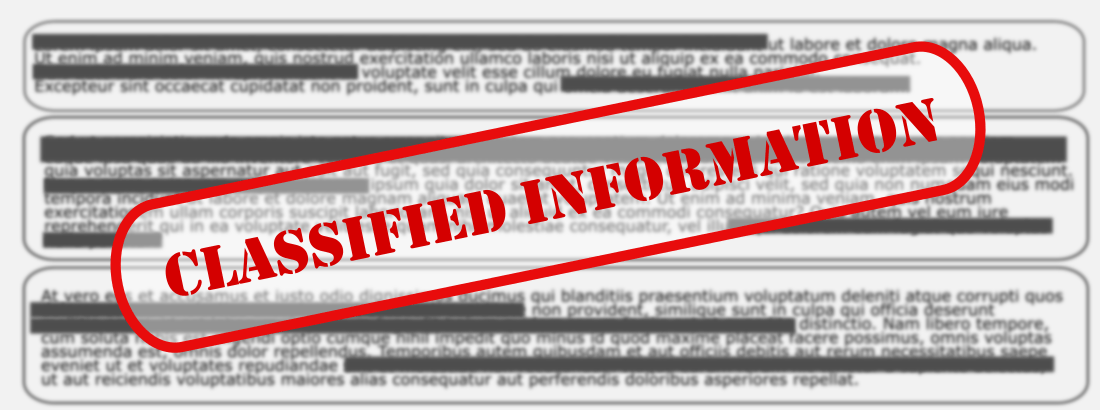What are the goals of cybersecurity?
What are the goals of cybersecurity?
In today’s world increasingly dominated by digital technology, cybersecurity plays a key role in ensuring the protection of data, infrastructure and user privacy. What exactly is cybersecurity and what are the goals of this field? We will discuss key aspects of cybersecurity such as protecting data, critical infrastructure, ensuring privacy and fighting cybercrime, analyzing the importance of each of these goals in the context of the modern digital world.
What is cybersecurity?
Cybersecurity is a field that focuses on protecting computer systems, networks, data and other digital devices against attacks, unauthorized access, damage or theft of information. In today’s world dominated by digital technology, cybersecurity is becoming increasingly important as many aspects of everyday life, business, public administration and critical infrastructure rely on information technologies.
What are the goals of cybersecurity?
The main reasons why cybersecurity is important are:
Data protection
Many organizations store sensitive data such as personal data, financial information and confidential business information. Without appropriate protection measures, this data may be vulnerable to theft, loss or manipulation.
Why is data protection important?
People expect their personal data to be protected and treated confidentially. Without data protection, trust in the organization can be shaken, which can lead to loss of customers and a negative impact on the company’s reputation.
Many countries have introduced data protection laws, such as the General Data Protection Regulation (GDPR) in the European Union. Failure to comply with these regulations may lead to financial penalties and other legal consequences.
Personal data and financial information are often targeted by cybercriminals who try to steal, manipulate or use it for fraud purposes. Data protection helps prevent such attacks and increases an organization’s resilience to cyber threats.
Data protection ensures data integrity, that is, it prevents unauthorized modification, corruption or loss of data. Ensuring data integrity is important to ensure its accuracy and reliability.
If sensitive data is lost or corrupted, organizations may experience disruptions to their business operations or even complete data loss, which can lead to significant financial and reputational losses.
Data protection is essential for maintaining privacy, customer trust, regulatory compliance, preventing cyberattacks and maintaining business continuity. Therefore, organizations should invest in appropriate data security measures and procedures to protect their assets from various types of threats.
Critical infrastructure protection
Systems that control and manage critical infrastructure such as power plants, energy grids, transportation systems and financial institutions must be protected against attacks that can cause disruption or destruction.
Critical infrastructure provides basic services and functions that are essential for the functioning of society, such as access to electricity, transport, water and telecommunications. Its disruption or destruction could pose a significant threat to public safety.
Critical infrastructure underpins the economy, providing the necessary means to produce, transport and distribute goods and services. Its disruption may lead to serious financial losses, supply disruptions and destabilization of markets.
Some elements of critical infrastructure, such as healthcare systems, are crucial to ensuring the health, safety and well-being of society. Their protection is extremely important to maintain the functioning of health systems in the event of crises or disasters.
Many elements of critical infrastructure, such as defense, telecommunications and transport systems, are important for national security and defense of the country. Their protection is crucial to ensuring the state’s defense capabilities.
Therefore, the protection of critical infrastructure is not only a matter of security, but also a matter of strategic importance for the functioning of society, the economy and the state as a whole. Therefore, it is necessary to take appropriate actions to prevent attacks and threats and invest in security measures that will ensure the infrastructure’s resistance to various types of risks and threats.
Infrastructure protection and management are made easier by:
information and data security management system (ISMS) ISO/IEC 27001 – more
ISO 22301 business continuity management system – more
Privacy guarantee
As people increasingly use the Internet and various applications, protecting privacy becomes more and more important. Cybersecurity helps ensure that users’ personal information and communications are protected from unauthorized access.
Guaranteeing privacy helps build trust between users, customers and service providers. Users are more likely to use services where their data is properly protected, which translates into better relationships and loyalty.
Lack of privacy may lead to abuse, discrimination and the use of personal data in an unethical or illegal manner. Ensuring privacy protects users from such negative consequences.
The privacy of personal data, especially financial data, is crucial to preventing identity theft, financial fraud and other forms of crime that can have negative financial and personal consequences.
Privacy gives people the freedom to express their views, beliefs and explore new ideas without fear of excessive surveillance or censorship.
Privacy protection is important to maintain a balance between ensuring security and respecting individual freedom. Ensuring privacy does not mean ignoring security issues, but striking a balance between these two values.
Ensuring privacy is crucial to respecting the dignity and rights of the individual, building trust in interpersonal relationships and ensuring social security and stability. Therefore, privacy protection is an important element of cybersecurity that helps ensure that users’ personal information and communications are protected from unauthorized access and misuse.
Protection against cybercrime
Cybercrime such as hacking, phishing and ransomware attacks can cause significant financial damage and violate user security and trust.
Cyber attacks can cause direct financial losses for businesses and users, including loss of money, theft of financial data, damage to IT infrastructure, and costs associated with data recovery or service restoration.
Ransomware attacks and other forms of cybercrime can lead to the loss of valuable business, personal or financial data, which can have serious consequences for the continuation of a business or personal life.
Phishing attacks and data breaches can lead to unauthorized access to users’ personal information, which in turn can lead to identity theft, financial fraud and other forms of abuse.
Cyber attacks can lead to disruptions in access to internet services, IT systems or communications, which can lead to work delays, financial losses and loss of trust from customers and business partners.
Data breaches and cyber attacks can have a negative impact on a company’s or organization’s reputation, especially if they involve the leak of customer data or information about critical security vulnerabilities.
Advanced cyber attacks, especially those carried out by states or organized groups, may pose a serious threat to national security, critical infrastructure and social stability.
Cybercrime can lead to significant financial damage, breaches of privacy and security, and affect reputation and trust in society. Therefore, it is important that organizations and individuals take appropriate countermeasures and act proactively to minimize the risk of cyber attacks and protect themselves from their effects.
Find out how much your organization’s cybersecurity could cost.
Use our Calculator
To sum up, nowadays Cybersecurity plays a very important role. Protecting data, critical infrastructure, user privacy and fighting cybercrime are the foundations of an effective cybersecurity strategy. Ensuring security in these areas is crucial to protecting the interests of both individuals and entire societies in the digital age. Pursuing these goals requires cooperation between the public and private sectors, investment in advanced technologies and tools, and continuous adaptation to changing cyber threats. Fully secured and resilient digital systems are crucial to ensuring stability, security and prosperity in today’s world.








